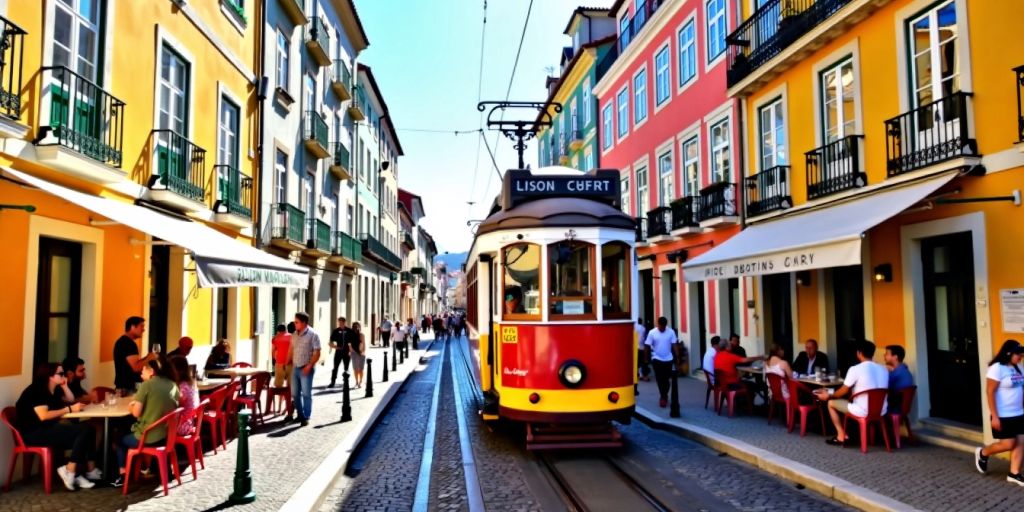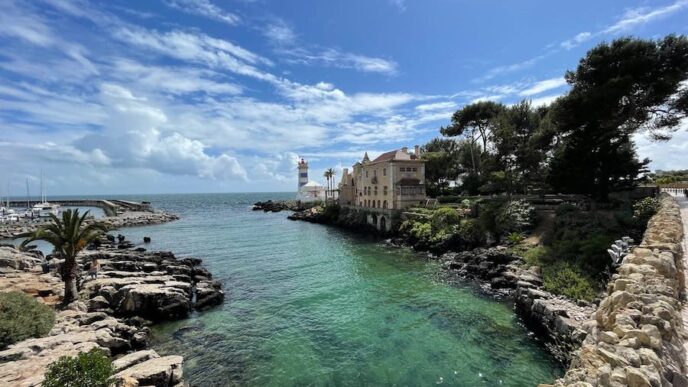Learning a new language can be daunting, especially when it comes to sounding like a native speaker. Liz from teh brilliant channel Talk the Streets explores 10 easy phrases in European Portuguese that will elevate your conversation skills and boost your confidence. These phrases are practical, easy to learn, and perfect for everyday use.
Phrase 1: “Agora”
The first phrase is “agora”, which translates to “now”. This is a versatile expression that conveys a sense of reassurance, similar to saying “no worries”. You can use it when someone apologizes or even when someone bumps into you. It’s a great way to keep the conversation light and friendly.
Phrase 2: “Estás à vontade”
Next up is “estás à vontade”. This phrase means “make yourself at home” or “feel free”. It’s commonly used when welcoming someone into your space, like your home or even in a car. It’s a warm and inviting expression that makes others feel comfortable.
Phrase 3: “De nada”
When someone thanks you, respond with “de nada”. This phrase translates to “no, thank you” and is a polite way to acknowledge gratitude. It emphasizes that you feel obliged to help, making it a lovely way to express humility.
Phrase 4: “Posso?”
The fourth phrase is simply “posso?”, meaning “may I?”. This comes from the verb poder (to be able to). Instead of forming a complete question, just saying “posso?” allows you to indicate your intention, making it a handy phrase to have in your vocabulary.
Phrase 5: “Força”
If someone asks you something after saying “posso?”, they might respond with “força”, which means “go ahead”. This phrase is not only useful in everyday situations but can also be used in sports contexts, cheering someone on.
Phrase 6: “E então?”
Another useful phrase is “e então?”, which can be translated as “so then?” or “what’s up?”. This is a casual way to greet someone and check in on how they are doing. It’s a friendly opener that can lead to more engaging conversations.
Phrase 7: “Já percebi”
When you finally understand something, you can say “já percebi”, meaning “I got it”. This phrase comes from the verb perceber (to understand) and is a great way to show that you are following along in a conversation.
Phrase 8: “Tanto faz”
If you’re given a choice and don’t have a preference, use “tanto faz”. This translates to “whichever” or “whatever”. It’s a casual way to express indifference and can help keep conversations flowing smoothly.
Phrase 9: “Claro que sim”
Instead of always saying “sim” (yes), try using “claro que sim”, which means “of course”. This phrase adds a touch of enthusiasm to your agreement and makes your responses sound more natural.
Phrase 10: “Até já”
Finally, when parting ways, you can say “até já”, which means “see you later”. This phrase implies that you will see the person again soon, making it a friendly farewell.
These 10 phrases are not just easy to learn; they are essential for anyone looking to improve their conversational skills in European Portuguese. Practice these phrases regularly, and you’ll find yourself sounding more like a native speaker in no time!













